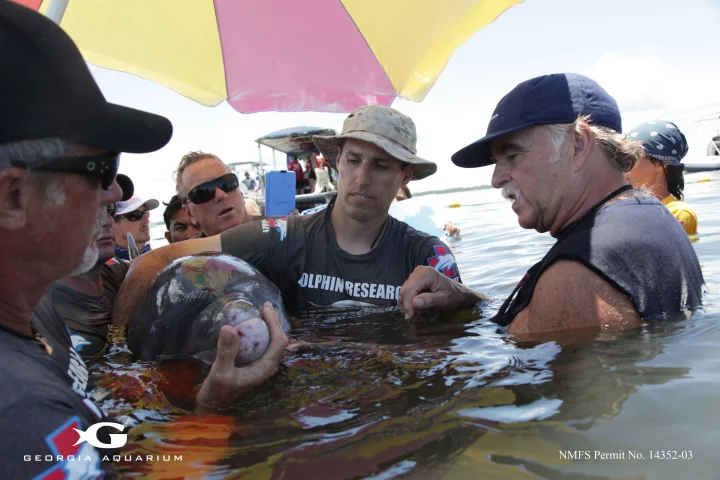Dolphin
-
Researchers have developed DolphinGemma, the first LLM for understanding dolphin language. It could help us translate what these incredible creatures are saying, potentially much faster than we ever could with manual approaches used over decades.
-
Researchers have found compelling evidence to confirm that a specific pod of clever killer whiles in the Gulf of California has developed an astonishing new skill: hunting enormous whale sharks by attacking their undersides.
-
Delle, a bottlenose dolphin, was missing for years before being spotted over 500 miles from home, completely alone. Delle won't stop talking and has even learned a few unlikely vocal tricks in his years of complete solitude and self-talk.
-
A new propeller created by the Ningbo Institute of Materials Technology and Engineering (NIMTE) coated with a skin mimicking that of a dolphin holds the promise of significantly reducing fuel consumption and emissions in large cargo ships.
-
Scientists have had a career-making moment, capturing on film a dolphin with such a rare skin condition that only five other recorded examples exist. The dramatic black-and-white look, or piebaldism, has never been seen on a dolphin in Australian waters.
-
Already armed with an impressive sonar system, new research reveals that dolphins have an extra ability that evolves as they mature in the area where their baby whiskers once were. The super sense may help them navigate and find hidden food sources.
-
The matriarchal structure of the killer whale society is well known, with females living up to 90 years and playing a crucial role in passing on knowledge to the youngsters. Now, it seems the elders also help keep the trouble-making boys out of fights.
-
Love it or hate it, but the way humans modify their speech when they communicate with their young offspring, commonly known as "baby talk," has now been recorded among bottlenose dolphin mothers. It's the first time it's been heard, too.
-
Could the phenomenon of whale and dolphin strandings be due to Alzheimer's-like cognitive deficits in pod leaders that draw groups into shallow waters? A new study found pathological signs of Alzheimer's disease in brain tissue from stranded dolphins.
-
A new study has found the increasing frequency and severity of storms as a result of climate change to be a key factor in a novel skin disease seen in dolphins, by drastically altering the salinity of the waters the animals inhabit.
-
When it comes to securing food, it was always thought that dolphins learn their foraging skills exclusively from their mothers, but scientists have now discovered that they can learn them off their peers, too.
-
A new long-term study has found high levels of antibiotic-resistant bacteria in wild dolphins, with rates growing over the last decade.
Load More











